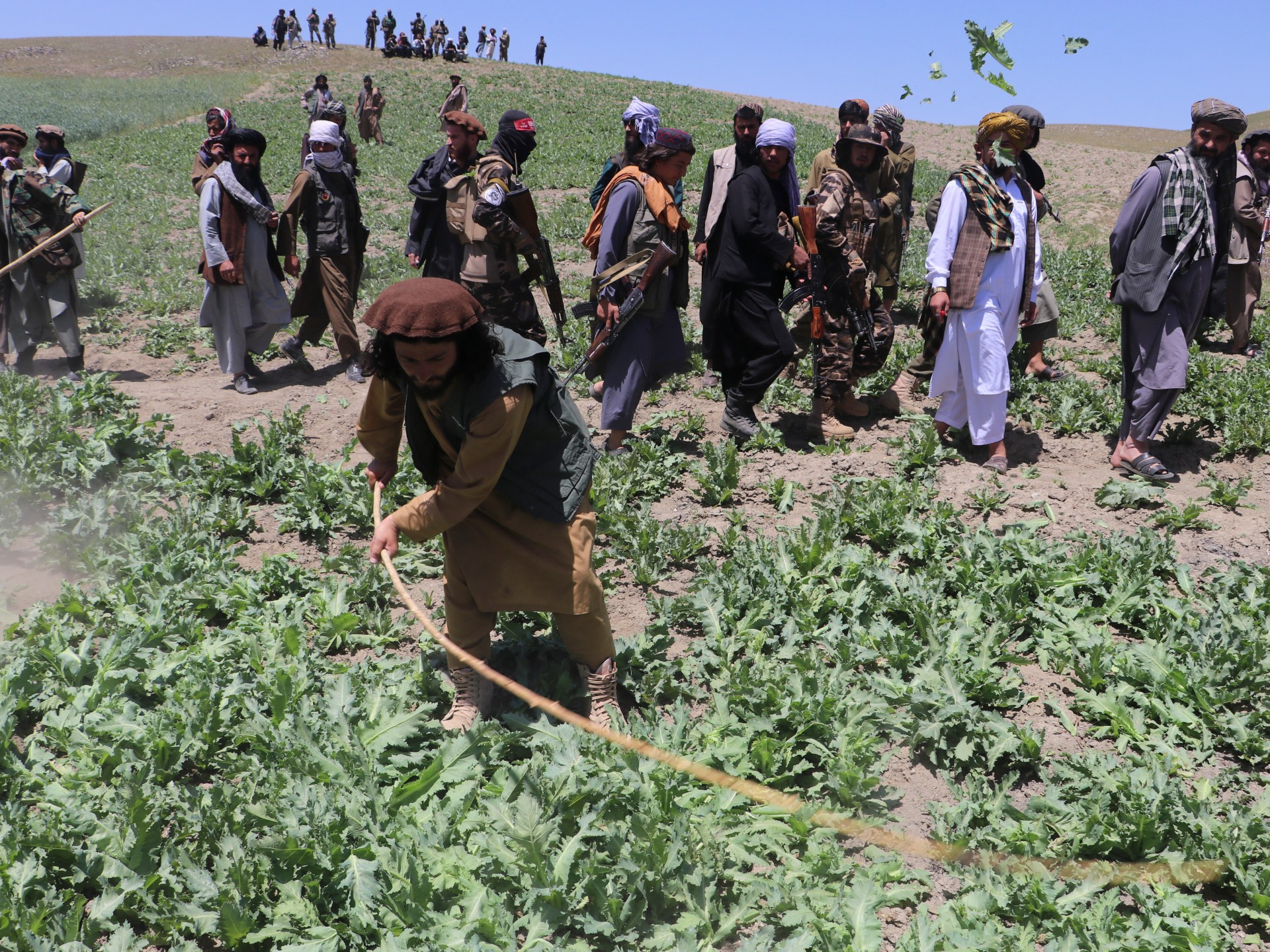
Poppy planting remains far below pre-ban levels, United Nations reports, despite rise of 19 percent year on year.
Afghanistan’s opium poppy cultivation grew in 2024 despite a Taliban-imposed ban, according to a United Nations report.
Cultivation increased by an estimated 19 percent this year, the report published on Wednesday by the United Nations Office on Drugs and Crime (UNODC) said.
Despite the increase, the cultivation of opium poppies – the source of the raw material for much of the world’s heroin – remains well below the levels reached before the Taliban clampdown in 2022.
This year’s cultivation area amounted to just 12,800 hectares (31,629 acres), a sharp drop from the 232,000 hectares (573,284 acres) cultivated before the prohibition.
The ban on narcotic cultivation in April 2022 saw a 95 percent drop in opium farming by 2023, according to the UNODC.
“This is important further evidence that opium cultivation has indeed been reduced, and this will be welcomed by Afghanistan’s neighbours, the region and the world,” said Roza Otunbayeva, special representative of the secretary-general and head of the UN Assistance Mission in Afghanistan.
The report also notes that cultivation has moved away from its traditional southwest heartland to the northeastern provinces, where 59 percent of cultivation occurred in 2024.
Cultivation surged by 381 percent in these provinces over 2023, particularly in Badakhshan, which accounted for most of the region’s opium production.
Sustainable
The report also notes that the ban has led to a spike in opium prices, meaning that poppy cultivation remains an enticing prospect for struggling Afghans.
Prices have stabilised at about $730 per kg, up from pre-ban averages of about $100, and significantly higher than the “20-year peak” of $408 recorded in August 2023.
Otunbayeva stressed that rural communities deprived of the key income source that opium poppies represented must be supported.
“They desperately need international support if we want this transition to be sustainable,” she said.
Many farmers in Afghanistan, one of the poorest countries in the world, have been hit hard financially by the ban and have not been able to reap the same profit from alternative crops.
Even legal crops are only a short-term solution, according to the International Crisis Group, which says a focus is needed on job creation in non-farm industries.
In May, clashes between farmers and brigades sent to destroy their poppy fields resulted in several deaths in Badakhshan, a mountainous area that includes a stretch of the Hindu Kush and Afghanistan’s relatively short border with China.
“With opium cultivation remaining at a low level in Afghanistan, we have the opportunity and responsibility to support Afghan farmers to develop sustainable sources of income free from illicit markets,” said UNODC Director Ghada Waly.










